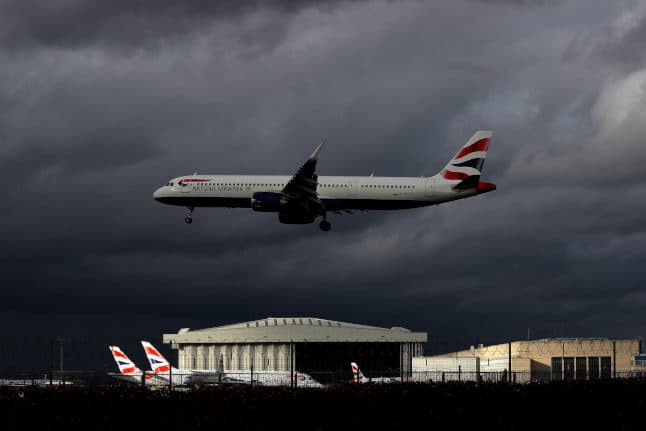This involves giving each country a designation – red, amber or green – based on data including case numbers, the rate of infection and vaccination in the country.
What’s happening in Denmark?
Denmark's rate of new infections, at slightly 11 cases a day per 100,000 people on a seven day rolling average, is relatively low, and the country's health authorities describe the pandemic as under control.
It has also run one of Europe's most successful vaccination programs, with 12.8 percent of the population fully vaccinated, a higher share of the population than in any other country covered by The Local's network.
Can I go to the UK from Denmark?
We don’t yet know exactly what category Denmark is in.
Not being on the green list doesn’t necessarily mean that travel isn’t allowed – it just means that people will have to quarantine and take a test on arrival in the UK.
- Red list – arrivals have to quarantine in specially-designated quarantine hotels for 10 days. The traveller is liable for the cost of these, which is up to £1,700, plus the cost of testing after arrival. A negative PCR test is required to enter the country. This is expected to be based on the UK’s current red list, which is restricted to UK/Irish nationals, those with residency in the UK and certain professions, and is reserved for the highest-risk countries (you can find the current red list here, which does not include Denmark).
- Amber list – arrivals have to quarantine for 10 days but can do so in a location of their choice including the home of a friend or family member. Arrivals also have to pay for travel-testing kits which cost around £200 per person. A PCR test is required to enter the country. This is the regime currently in place for most arrivals.
- Green list – no quarantine is necessary, but a negative PCR test is required to enter the country, plus another test on or before day 2 of their stay.
A “green watchlist” will also be in place, for countries that might fall in-between criteria for amber or green.
Denmark's government currently classes the UK as "orange" in its own traffic light system, meaning it advises Danish residents against all unnecessary travel to the country.
Can I come to Denmark from the UK?
As of January 1st, 2021, the UK is treated the same as other non-EU/EEA countries with regards to Covid-19 travel rules.
The UK is currently classed as "orange", meaning that travellers who are not Danish residents or citizens need a "worthy purpose" to travel to the country.
These include: necessary business meetings, other work, study, being an au pair, visiting a girlfriend or spouse, or else travelling to Denmark with them, visiting a child who is a minor, visiting a seriously sick close relative, attending the birth of a child, ongoing medical treatment, attending a funeral. See full list (in Danish) here.
Anyone travelling to Denmark from the UK, including Danish residents, needs to show a recent negative coronavirus test before boarding their plane, and also a negative coronavirus test after arrival.
If you are not a Danish citizen or resident, you also need to show a recent negative coronavirus test on arrival in Denmark, and also isolate yourself for ten days.
The citizens and residents of EU and Schengen countries who are fully vaccinated can forgo these requirements. This does not however apply to people from the UK, who are not currently covered by the vaccine clause.
The EU Commission is proposing an easing of restrictions on non-essential travel.
https://twitter.com/vonderleyen/status/1389141961190301696
Under the plans, anyone who has received the last dose of an EU-approved vaccine at least two weeks beforehand will be allowed to travel without a test or having to quarantine.
Border restrictions are however up to each member state, and Denmark has made no decision yet.

Join the conversation in our comments section below. Share your own views and experience and if you have a question or suggestion for our journalists then email us at [email protected].
Please keep comments civil, constructive and on topic – and make sure to read our terms of use before getting involved.
Please log in here to leave a comment.